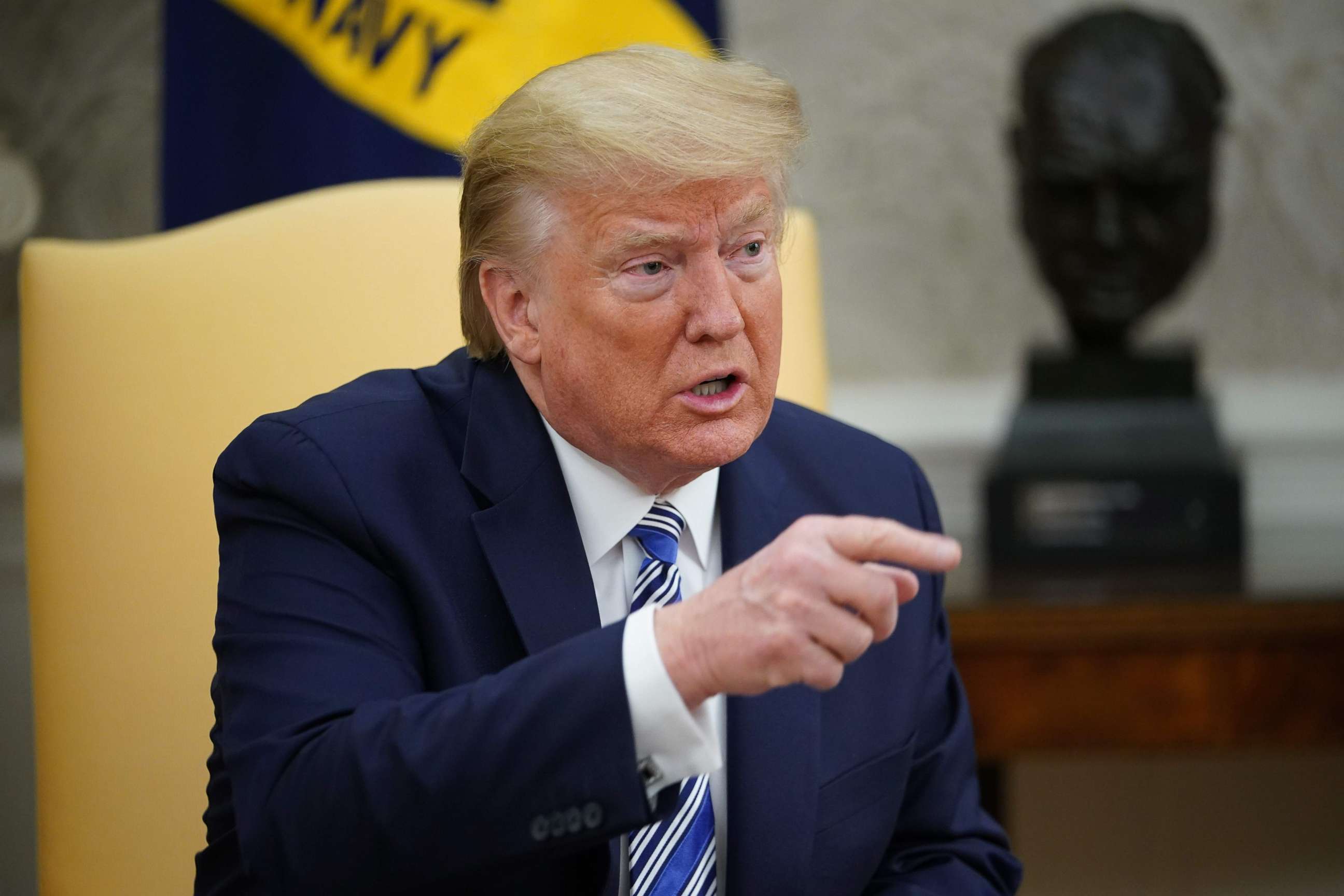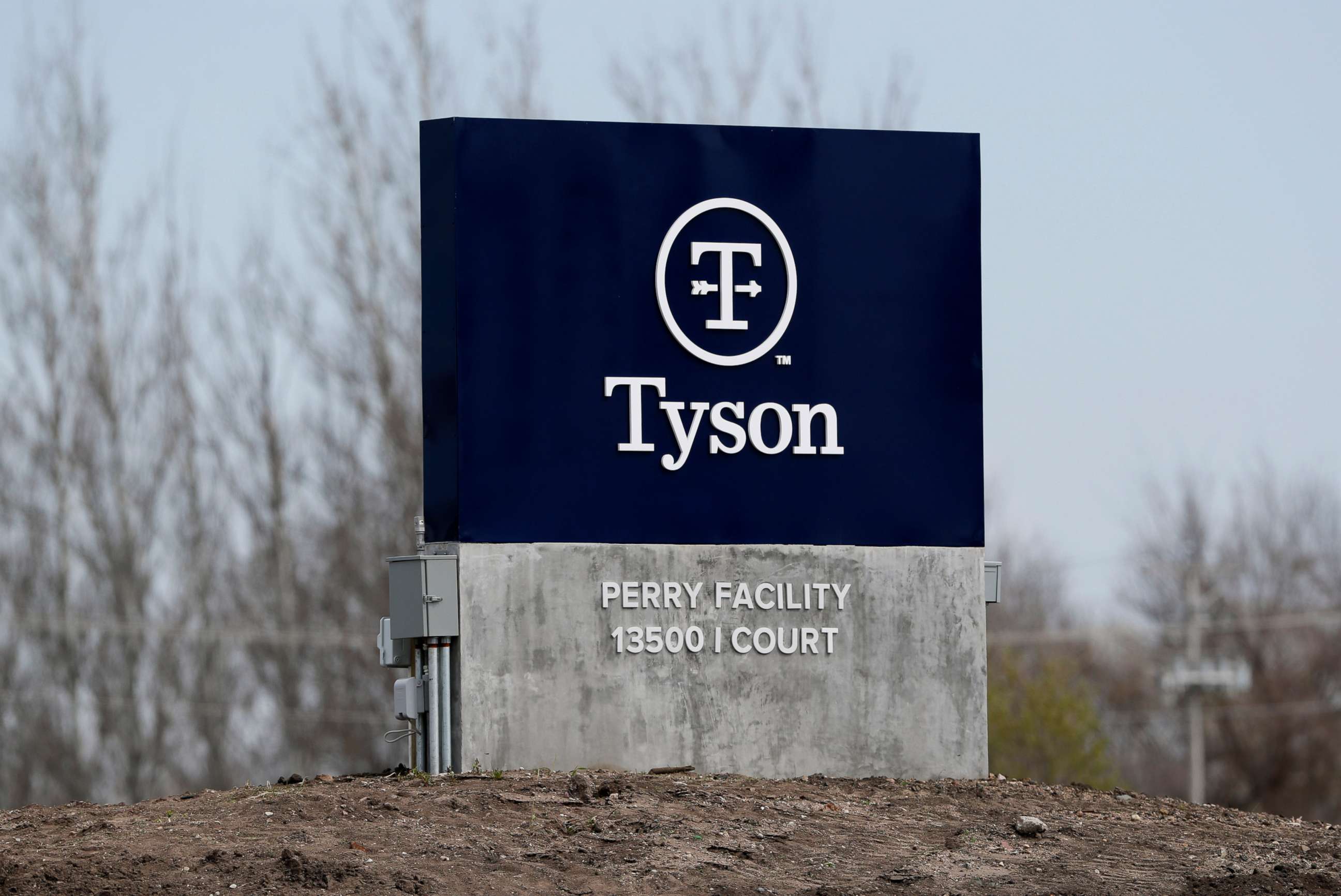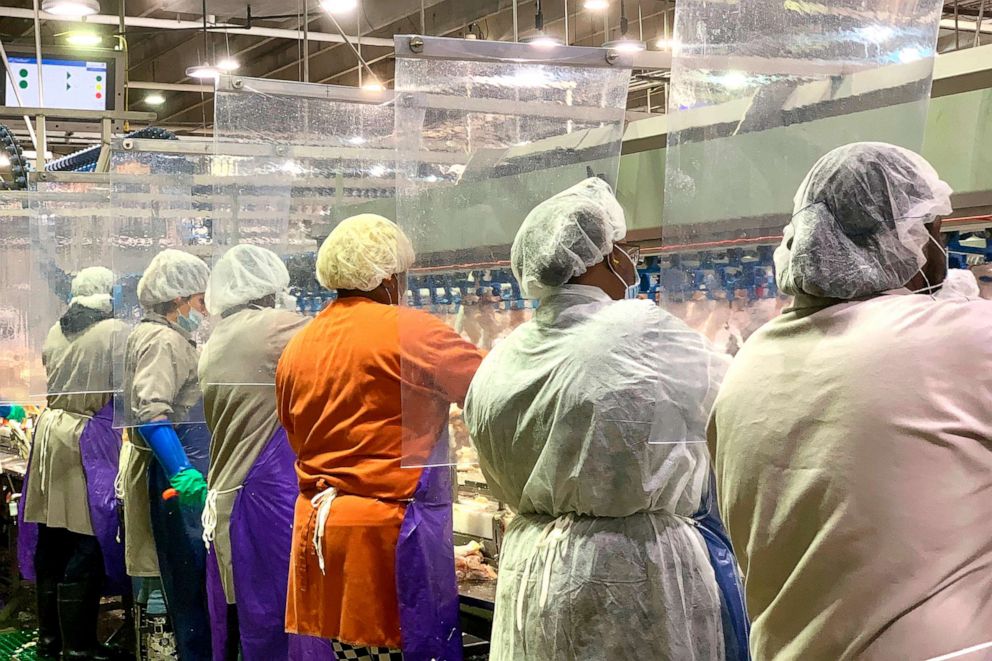Trump signs executive order to keep meat processing plants open under Defense Production Act
The order will compel plants to stay open as part of critical infrastructure.
President Donald Trump signed an executive order Tuesday compelling the nation's meat packing plants, many of which have closed because of COVID-19 outbreaks among workers, to stay open as part of "critical infrastructure" in the United States, administration officials tell ABC News.
The five-page order is two-pronged. A senior administration official said earlier in the day, "from a (Defense Production Act) standpoint, it mandates that critical food supply operations stay open" and second, "from a liability standpoint, we will issue guidance coming from (the Department of Labor) that will provide additional liability protections."
It was unclear what the liability protections might involve.

Trump told reporters on Tuesday he would be signing the order, but didn’t provide many details.
"We're going to sign an executive order today, I believe. And that will solve any liability problems where they have certain liability problems," the president said. "And we'll be in very good shape. We're working with Tyson, which is one of the big companies in the world. And we always work with the farmers. There’s plenty of supply, as you know. There's plenty of supply. It's distribution. And we will probably have that today solved. It was a very unique circumstance, because of liability."
Trump was referring to Tyson Food Inc., which suspended operations of its largest pork production plant last week. Smithfield Foods, Inc. also suspended operations at some of their plants.
Government officials in the Midwest had been urging the administration to use the Defense Production Act to deem the plants critical.

Sen. Mike Rounds, a South Dakota Republican who rarely spurs the administration to take action, wrote to the president Monday to push him to invoke the Defense Production Act to address the "on-farm and on-ranch livestock emergency" in order to "help keep food production plants open safely."
According to a press release Tuesday from the United Foods and Commercial Workers International Union, at least 20 meatpacking and food processing workers have been confirmed dead and "at least 5,000 meatpacking workers and 1,500 food processing workers have been directly impacted by the virus."

The union wrote a letter to Vice President Mike Pence last week urging the White House coronavirus task force to prioritize the safety of grocery workers and those workers in meat processing plants.
"At the same time, we have heard both federal and state elected leaders refer to these workers as essential, yet they are not being provided the essential protections they need to do their jobs safely. For the sake of these essential workers’ lives, and the safety of our food supply, this must change immediately, and we must prioritize the safety and protection of all grocery workers and workers in meatpacking and food processing plants," the letter said.
An administration official said that they were considering providing some guidance for those workers who are most at risk from severe complications from COVID-19.
"For example, for a processing plant worker that is over 65, or one that has pre-existing health conditions that put them at a greater risk, we would work with the Department of Labor to issue guidance strongly suggesting they stay at home," the official said.
What to know about the coronavirus:
- How it started and how to protect yourself: Coronavirus explained
- What to do if you have symptoms: Coronavirus symptoms
- Tracking the spread in the U.S. and worldwide: Coronavirus map
Tune into ABC at 1 p.m. ET and ABC News Live at 4 p.m. ET every weekday for special coverage of the novel coronavirus with the full ABC News team, including the latest news, context and analysis.




